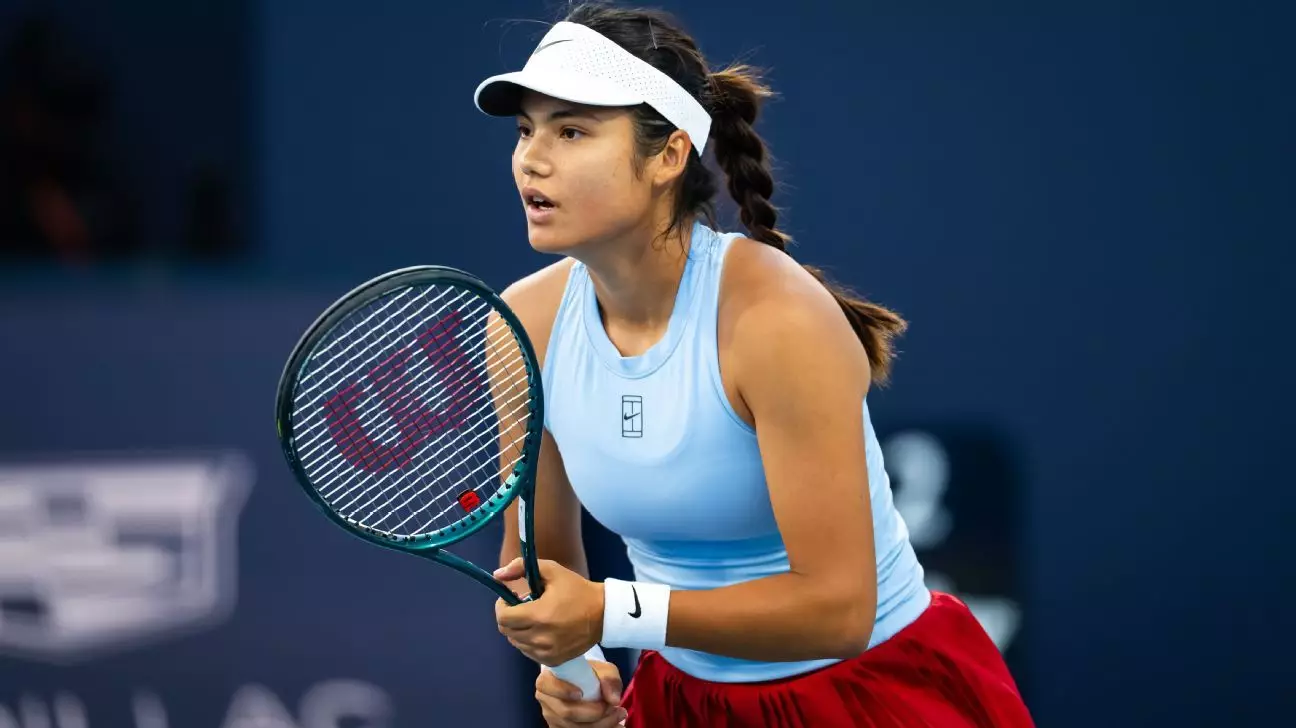In the fast-paced universe of professional tennis, where strategies often hinge on technical precision and relentless training, Emma Raducanu’s choice to embrace a more relaxed coaching arrangement with Mark Petchey stands out as a refreshing anomaly. Rather than conforming to the conventional expectations of structured coaching partnerships, Raducanu seems to have found solace in a more “informal” collaboration. This approach has allowed her the freedom to explore her own needs without the weight of excessive technical demands, which can often stifle creativity on the court.
Raducanu openly admits to navigating a tricky landscape — one marked by form inconsistencies and fitness challenges. Having transitioned between multiple coaching styles, she is now on a quest to discover what resonates best with her. This introspection highlights a significant shift in her mindset: it’s no longer about adhering strictly to prescribed techniques, but rather focusing on cultivating an environment that fosters her unique talents. It’s a powerful testament to the notion that sometimes stepping back, rather than fully immersing oneself in the grind, can yield the most profound insights.
Reflections from a Recent Hiatus
Returning to compete at the Madrid Open after a mid-season pause provides Raducanu with an opportunity to apply the lessons gleaned from her break. This hiatus appears to have been both a physical and mental reset, as she contemplates the impact of overtraining—a pitfall familiar to many elite athletes. Her candid acknowledgment of the necessity of rest serves as an empowering narrative for young athletes who may feel pressured to constantly perform at peak levels.
By withdrawing from the Billie Jean King Cup qualifiers for the sake of recuperation, Raducanu demonstrates a maturity that transcends the typical athlete’s pursuit of glory. Her quarterfinal appearance in Miami, albeit marred by physical strain, prepared her for this next chapter in her career—a balancing act between challenge and recovery. It’s in recognizing the value of downtime that she cultivates a mindset attuned to sustainability and long-term success.
Less is More: A New Approach to Performance
Raducanu’s statement, “less is more,” reverberates throughout the athletic community as a subtle yet powerful mantra. In a sport that often glorifies intensity and relentless practice, her approach could revolutionize how young athletes perceive training. The emphasis on quality over quantity encourages a more intelligent style of practice, engaging players to allocate their energies where it counts.
Furthermore, her awareness of the necessity for focused efforts during practice, paired with the discipline to switch off when necessary, is truly groundbreaking. By advocating for a more mindful engagement with her training regimen, Raducanu’s philosophy invites others to rethink their strategies, potentially yielding richer experiences both physically and mentally.
As she gears up for her match against Dutchwoman Suzan Lamens, Raducanu’s evolving relationship with her sport illustrates a profound understanding of the inner workings that shape an athlete’s performance. By moving away from a rigid framework and allowing space for flexibility, she may very well be setting a new precedent in the ever-evolving world of tennis.
Emma Raducanu is reimagining her path, skillfully blending resilience with a pursuit of balance, and ushering in a refreshing chapter that could inspire many.

